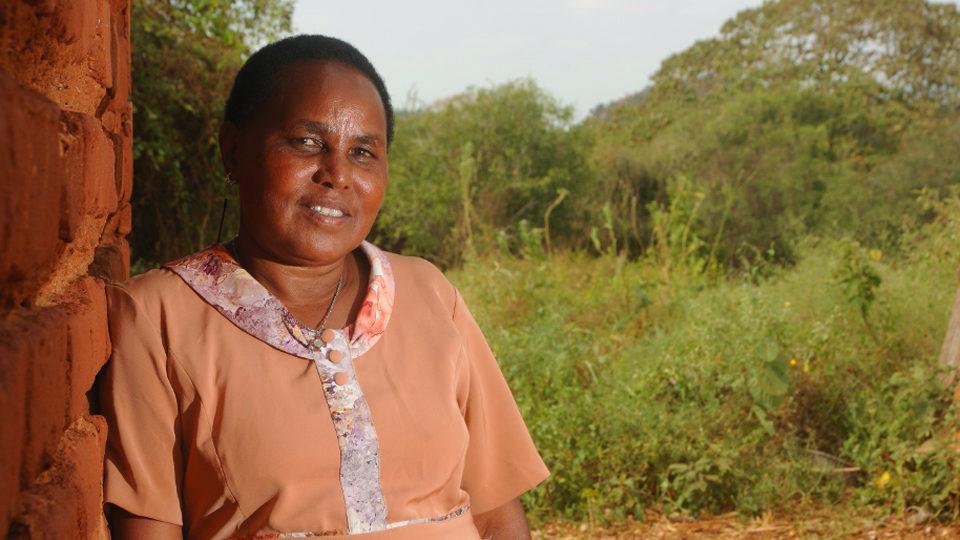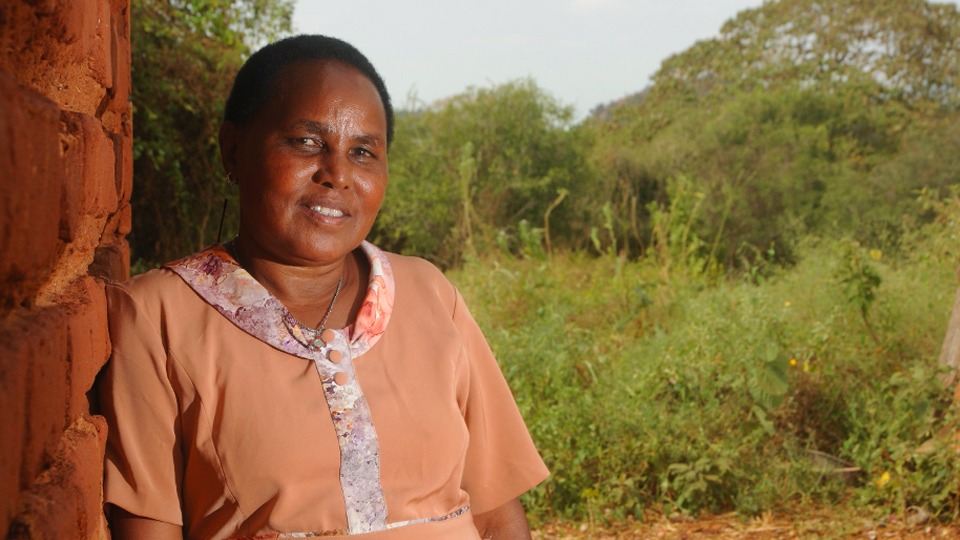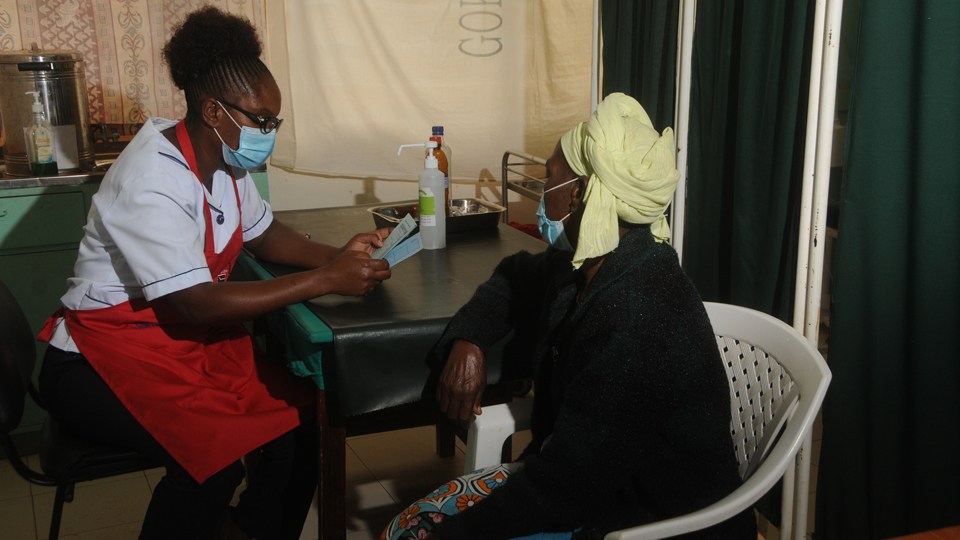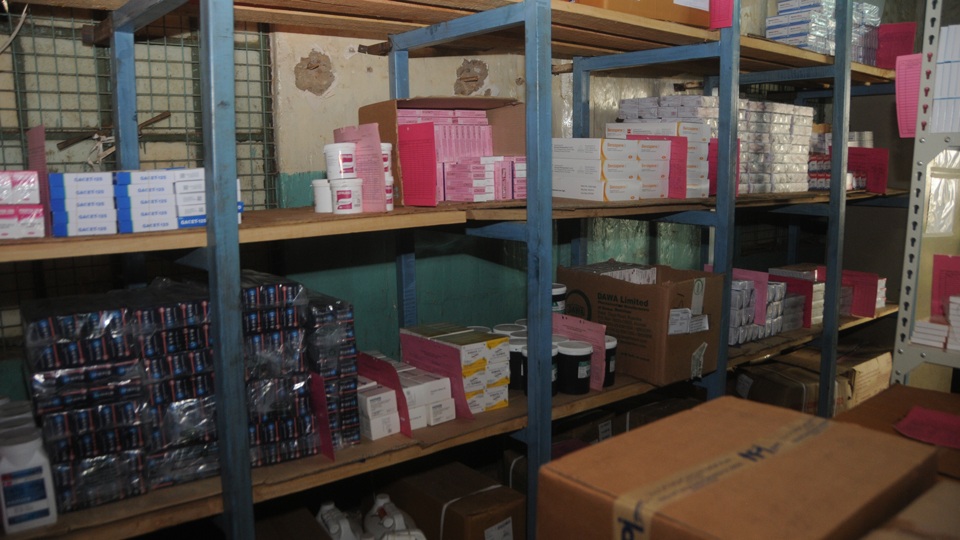Combating Cervical Cancer in Kenya during COVID-19

Combating Cervical Cancer in Kenya
In Kenya, cervical cancer is one of the leading causes of cancer deaths in women, despite it being preventable with effective screening programs. Cervical cancer is unique in that over 70% of cases can be prevented by administering the HPV vaccine, which prevents against the human papillomavirus (HPV).
Since 2017, CMMB has partnered with the Bristol Myers Squibb Foundation to respond to this crisis in Kitui South, Kenya. Together, we have worked to raise awareness about the importance of vaccinating women and girls, train health professionals on how to perform cervical cancer screenings, and provide essential medical supplies for the screenings.
This year alone, amidst the challenges presented by the COVID-19 pandemic, CMMB and Bristol Myers Squibb educated over 20,000 women about cervical cancer prevention. More than 5,600 women were screened for cervical and breast cancer. In addition, CMMB provided 63 health facilities with screening supplies.
Implementing New Strategies to Reach the Community
The COVID-19 pandemic redefined CMMB’s approach to combating cervical cancer in Kitui South, Kenya. Due to restrictions on public gatherings and the decline in the number of patient visits to health facilities for non-COVID-19 care, CMMB reimagined community outreach amidst social distancing by using digital media.
Previously, in-person outreach events were the main way to disseminate information on cervical cancer and screening services in this rural area. However, after the ban on public gatherings—which included trainings by the Kenyan government—CMMB designed text message packages to continue to reach the community.
Mary Nzembi, CMMB-trained Nurse
Working with CMMB project partners at Mutomo Mission Hospital, community health workers received messages about cervical cancer prevention to pass on to the households that they are assigned to visit. CMMB trained community health workers on cervical cancer messaging to educate the community. It was the first time that digital media had been used to this scale for cervical cancer awareness in Kitui South.
The messages highlighted information about screening services at local healthcare facilities and the importance of early preventative measures, including the HPV vaccination. In addition, text reminders were also sent to clients, prompting them to attend their treatments at their local facilities and go for follow-up checks.
“As a survivor of cervical cancer, I use my story to sensitize fellow frontline workers. Early screening means opportunity for early treatment.”
“As a survivor of cervical cancer, I use my story to sensitize fellow frontline workers and the community health volunteers—and educate the community members about my experience and the importance of screening,” said Mary Nzembi, a nurse trained by CMMB on screening and cryotherapy. She is also a community mobilizer and educator.
“I thank CMMB for providing an opportunity for women in our community to get access to screening services and cancer care in Kitui South. Early screening means opportunity for early treatment,” Mary said.
Through the power of digital media, women continued to learn about cervical cancer prevention, despite the challenges presented by COVID-19. Thanks to the success of this strategy, healthcare workers continue to use text message packages to raise awareness and connect with the community.
CMMB provided 63 health facilities with screening supplies, such as including iodine solution, applicator sticks, and cotton wool. In addition, Bristol Myers Squibb provided emergency funding for PPE.
Moving Towards a Future Free of Cervical Cancer
Despite the challenges presented by COVID-19, CMMB and Bristol Myers Squibb have strengthened cervical and breast cancer management in Kitui South, Kenya. Thanks to the local demand generated by CMMB’s programing, the Kenyan government hired a visiting gynecologist to do regular screenings in Kitui South. Now women do not have to travel to Nairobi for a diagnosis. Breast cancer screenings have also been integrated into standard women’s care.
These efforts will support access to preventative services, screening, and treatment for years to come—moving towards a future free of cervical cancer in Kenya.

